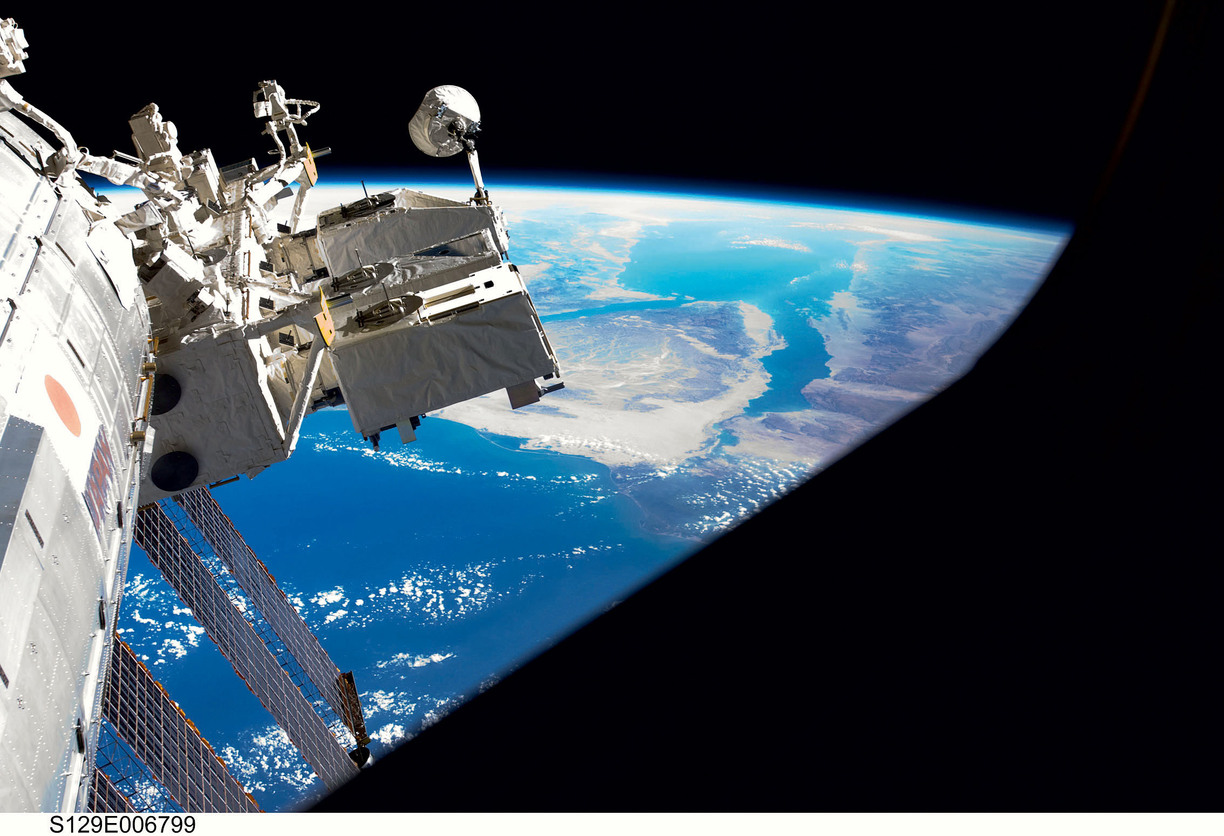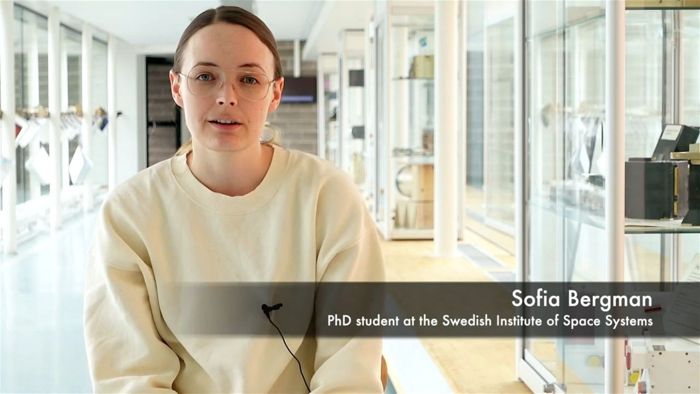
Master Programme in Space Science and Technology
120 credits, programme, master's level, TMRRA
Space science and space technology – SpaceMaster, is a collaboration with leading European universities and results in two Master’s degrees. We provide cutting-edge space research facilities in a unique environment and offer great partnerships with global space research and industry organizations.
The program is an interdisciplinary program with various specialisations in space science and technology, with a strong emphasis on applied experience. The curriculum is approved by all partner universities within the consortium. Your first year of studies is conducted at the Space Campus in Kiruna. In your second year, you can choose one of the partner universities specialising in different areas of space science and technology. You will later carry out your thesis work at a partner university or other research and industrial organizations worldwide.
You start an exciting year at Kiruna Space Campus with advanced courses where you delve into Physics of the solar system, Space physics, Space communication, and Spacecraft systems. Practical components are often integrated into the courses, allowing you to work in teams alongside other international students and researchers. There is a collaboration with Sweden’s leading space entities, such as IRF (Institute for Space Physics), EISCAT (Scientific Association), and SSC (Swedish Space Corporation). This collaboration means you can build networks, tap into their expertise, and
access certain infrastructure. During the summer months, all students can take the opportunity to do research internships at partner universities, space research, and industrial organizations.
In your second year, you choose a specialisation. You have a range of partner universities in Europe to choose from, or you can continue your studies at Space Campus in Kiruna. Our partner universities are in Finland, the United Kingdom, France, and the Czech Republic. Below, you can see the specialisations available for your second year.
· Space Technology and Instrumentation, Luleå University of Technology.
· Atmospheric and Space Science, Luleå University of Technology.
· Space Robotics and Automation, Aalto University School of Electrical Engineering.
· Small satellites and Space Instrumentation, Aalto University School of Electrical Engineering.
· Dynamics and Control of Systems and Structures, Cranfield University.
· Space Automation and Control, Czech Technical University in Prague.
· Space Technique and Instrumentation, Université Toulouse III - Paul Sabatier.
· Astrophysics, Space Science and Planetology, Université Toulouse III - Paul Sabatier.
Your teachers at the partner universities are active researchers who integrate the latest findings into the program’s courses. The education aims to provide you with a broad knowledge in space-related subjects and to develop leadership and interdisciplinary skills necessary for working on modern and complex space projects. When completing your studies, you will have obtained an internationally recognized professional qualification and have access to a strong professional network that can shape your future career.
Sign up for the programme
LTU-97015
Open for late application!
Master Programme in Space Science and Technology
Start date 2024-09-02, v. 36 2024, KirunaNormal teachingDay-time 100%Autumn 2024
Programme overview
Select Specialisation
Select profile
60 cr
37.5 cr
35 cr
22.5 cr
3 cr
120 credits, programme, master's level, TMRRA
Space science and space technology – SpaceMaster, is a collaboration with leading European universities and results in two Master’s degrees. We provide cutting-edge space research facilities in a unique environment and offer great partnerships with global space research and industry organizations.
The program is an interdisciplinary program with various specialisations in space science and technology, with a strong emphasis on applied experience. The curriculum is approved by all partner universities within the consortium. Your first year of studies is conducted at the Space Campus in Kiruna. In your second year, you can choose one of the partner universities specialising in different areas of space science and technology. You will later carry out your thesis work at a partner university or other research and industrial organizations worldwide.
You start an exciting year at Kiruna Space Campus with advanced courses where you delve into Physics of the solar system, Space physics, Space communication, and Spacecraft systems. Practical components are often integrated into the courses, allowing you to work in teams alongside other international students and researchers. There is a collaboration with Sweden’s leading space entities, such as IRF (Institute for Space Physics), EISCAT (Scientific Association), and SSC (Swedish Space Corporation). This collaboration means you can build networks, tap into their expertise, and
access certain infrastructure. During the summer months, all students can take the opportunity to do research internships at partner universities, space research, and industrial organizations.
In your second year, you choose a specialisation. You have a range of partner universities in Europe to choose from, or you can continue your studies at Space Campus in Kiruna. Our partner universities are in Finland, the United Kingdom, France, and the Czech Republic. Below, you can see the specialisations available for your second year.
· Space Technology and Instrumentation, Luleå University of Technology.
· Atmospheric and Space Science, Luleå University of Technology.
· Space Robotics and Automation, Aalto University School of Electrical Engineering.
· Small satellites and Space Instrumentation, Aalto University School of Electrical Engineering.
· Dynamics and Control of Systems and Structures, Cranfield University.
· Space Automation and Control, Czech Technical University in Prague.
· Space Technique and Instrumentation, Université Toulouse III - Paul Sabatier.
· Astrophysics, Space Science and Planetology, Université Toulouse III - Paul Sabatier.
Your teachers at the partner universities are active researchers who integrate the latest findings into the program’s courses. The education aims to provide you with a broad knowledge in space-related subjects and to develop leadership and interdisciplinary skills necessary for working on modern and complex space projects. When completing your studies, you will have obtained an internationally recognized professional qualification and have access to a strong professional network that can shape your future career.
Programme overview
Select Specialisation
Select profile
60 cr
37.5 cr
35 cr
22.5 cr
3 cr
Sign up for the programme
LTU-97015
Open for late application!
Master Programme in Space Science and Technology
Start date 2024-09-02, v. 36 2024, KirunaNormal teachingDay-time 100%Autumn 2024

Meet a space scientist
Sofia Bergman is a Phd student at the Swedish Institute of Space Physics, IRF. Here she tells about her project, why she choose the space field and her future career dreams.

Students meet space companies
LiftOff is a job fair that occurs every year at Kiruna Space Campus focusing on space related work opportunities, arranged by students for students.
.jpg)
Top eight reasons to study in the north
What would life be like up in the North and at Luleå University of Technology? Here you can start an exciting journey, where you can reach your career goals and experience a unique way of life.

Do you have questions about the program?
Our staff will answer you as soon as possible.
Updated:
